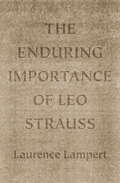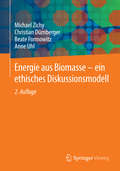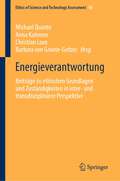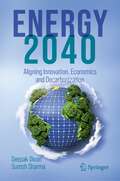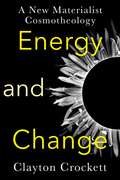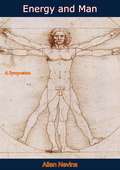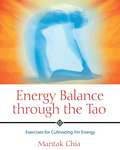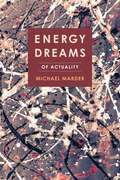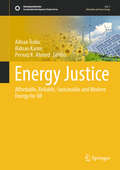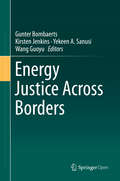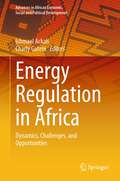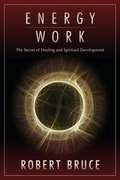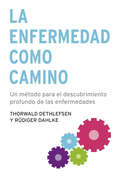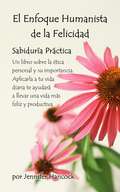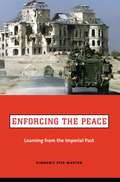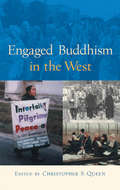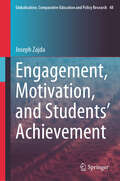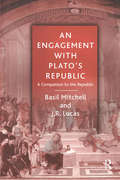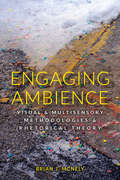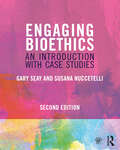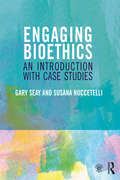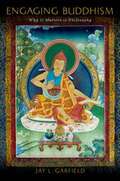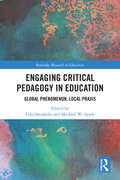- Table View
- List View
The Enduring Importance of Leo Strauss
by Laurence Lampert"The Enduring Importance of Leo Strauss" takes on the crucial task of separating what is truly important in the work of Leo Strauss from the ephemeral politics associated with his school. Laurence Lampert focuses on exotericism: the use of artful rhetoric to simultaneously communicate a socially responsible message to the public at large and a more radical message of philosophic truth to a smaller, more intellectually inclined audience. Largely forgotten after the Enlightenment, exotericism, he shows, deeply informed Strauss both as a reader and as a philosophic writer indeed, Lampert argues, Strauss learned from the finest practitioners of exoteric writing how to become one himself. Examining some of Strauss s most important books and essays through this exoteric lens, Lampert reevaluates not only Strauss but the philosophers from Plato to Halevi to Nietzsche with whom Strauss most deeply engaged. Ultimately Lampert shows that Strauss s famous distinction between ancient and modern thinkers is primarily rhetorical, one of the great examples of Strauss s exoteric craft. Celebrating Strauss s achievements while recognizing one main shortcoming unlike Nietzsche, he failed to appreciate the ramifications of modern natural science for philosophy and its public presentation Lampert illuminates Strauss as having even greater philosophic importance than we have thought before. "
Enemies of the Permanent Things
by Russell KirkIn the 1960s, Russell Kirk lectured and debated on many college campuses, ably defending traditional ideas against various liberal and radical adversaries. Enemies of the Permanent Things, first published in 1969, is the most significant extended meditation on culture and politics to come out of the rough and tumble of those years. As such, it is an invaluable document, articulating the response of a critical witness to the radically anti-authoritarian turn taken by the intellectual elite in that destructive decade. Kirk defines “the permanent things” (a phrase borrowed from T. S. Eliot) as the unchanging norms of human nature. In a healthy society, Kirk argues, individuals will attempt to live by these permanent standards of moral action, and the laws of the land will give support to citizens as they make that attempt. Focusing on literature as well as on politics, Kirk sets forth and defends those inalterable truths of human life.
Energie aus Biomasse - ein ethisches Diskussionsmodell
by Michael Zichy Christian Dürnberger Beate Formowitz Anne UhlEnergie aus Biomasse wird auf politischer, wissenschaftlicher und gesellschaftlicher Ebene höchst kontrovers diskutiert. – Dieses Buch liefert eine fundierte, klare und gut verständliche Analyse und Diskussion der ethischen und kulturell-emotionalen Aspekte von Energie aus Biomasse. Es diskutiert die Frage der Verantwortung und bringt naturwissenschaftliche und ethische Expertise in einen fruchtbaren Dialog. Vergleichende Fallstudien und Szenarien sorgen für die praktische Anbindung an die derzeitige landwirtschaftliche Praxis. Die zweite, überarbeitete Auflage bezieht sich auf die aktuellen gesetzlichen Rahmenbedingungen und berücksichtig die neuesten wissenschaftlichen Beiträge zum Diskurs, wie zum Beispiel zu indirekten Landnutzungsänderungen.
Energieverantwortung: Beiträge zu ethischen Grundlagen und Zuständigkeiten in inter- und transdisziplinärer Perspektive (Ethics of Science and Technology Assessment #50)
by Michael Quante Anna Kahmen Christian Loos Barbara von Groote-GotzesDer Band widmet sich der Frage, wer verantwortlich ist für einen ethisch angemessenen Umgang mit Energie. Dazu sollen zunächst in einem ersten Schritt die normativen Grundlagen von Energieverantwortung skizziert werden. In einem zweiten Schritt werden mögliche Spannungsfelder identifiziert, die in verschiedenen gesellschaftlichen, wirtschaftlichen und politischen Dimensionen bestehen. In einem abschließenden dritten Schritt wird die Perspektive auf Probleme erweitert, die durch die Implementierung energieverantwortlicher Maßnahmen und Bestrebungen entstehen. So leistet der Band eine Ordnung der Fragen rund um Energieverantwortung sowie die Darstellung, Bewertung und Lösung konkreter Handlungsprobleme im Feld der Energie-Nachhaltigkeit.
ENERGY 2040: Aligning Innovation, Economics and Decarbonization
by Deepak Divan Suresh SharmaAccess to energy is essential for our daily lives, economic growth, environment, and sustainability. However, our use of fossil fuels has contributed to global climate change, which poses a significant threat to society and life on this planet. Yet, it has been challenging to reconcile the perceived conflict between economics and climate change, which has created deep divisions in our society. ENERGY 2040: Aligning Innovation, Economics, and Decarbonization provides a holistic and comprehensive analysis of the ongoing energy transition and its underlying causes. It presents a viable path to meet the energy, economic, and climate goals by weaving together science, technology, economics, policy, entrepreneurship, and geopolitics. The book presents a captivating narrative that brings together a range of topics, including new and disruptive technologies with steep learning rates, the challenges of the future power grid, the democratization of energy, and reducing the timeline from science to impact at scale. It also explores the complex role of scientific research, disruptive deep tech, entrepreneurship, and policy in accelerating this energy transformation. This book is a must-read for anyone interested in understanding the future of energy. Whether you're a scientist, energy-industry practitioner, policymaker, investor, student, or concerned citizen, this book offers critical insights into the complex and evolving world of energy, innovation, decarbonization, and climate change.
Energy and Change: A New Materialist Cosmotheology (Insurrections: Critical Studies in Religion, Politics, and Culture)
by Clayton CrockettAs humanity continues to consume planetary resources at an unsustainable rate, we require not only new and renewable forms of energy but also new ways of understanding energy itself. Clayton Crockett offers an innovative philosophy of energy that cuts across a number of leading-edge disciplines. Drawing from contemporary philosophies of New Materialism, non-Western traditions, and the sciences, he develops a comprehensive vision of energy as a material process spanning physics, biology, politics, ecology, and religion.Crockett argues that change is foundational to material reality, which is ceaselessly self-organizing. We can observe energy’s effects in the operations of natural selection as well as those at work in human societies. Matter and energy are not an oppositional binary; rather, they are expressions of how change functions in the universe. Ultimately, Crockett argues, we can conceive of God neither as a deity nor as a being but as the principle of change.Informed by cutting-edge theoretical discourses in thermodynamics, science studies, energy humanities, systems theory, continental philosophy, and radical theology, Energy and Change draws on theorists such as Gilles Deleuze, Catherine Malabou, Slavoj Žižek, Karen Barad, Bruno Latour, and Kojin Karatani as well as ideas about spirituality, society, and nature from Amerindian, Vodou, and Neo-Confucian traditions. A foundational work in New Materialist philosophy of religion, this book offers compelling new insights into the structure of the cosmos and our place in it.
Energy and Man: A Symposium
by Allan Nevins Robert G. DunlopFirst published in 1960, Energy and Man is a book that comprises five speeches, together with follow-up questions, that were given by business school graduates at a symposium held at Columbia University on November 4, 1959.Contributions by Allan Nevins, Robert G. Dunlop, Edward Teller, Edward S. Mason and Herbert Hoover, Jr., with an Introduction by Courtney C. Brown.“THROUGH THE AGES, LEARNING HAS LOOKED TO THE WORLD of practical affairs for the major subjects of its interest. It is very appropriate that a great university, Columbia, through its Graduate School of Business, should share with a great industry, through its representative, the American Petroleum Institute, an inquiry into the role of energy, past, present, and future, in the lives of each of us.“So, when early in 1959 the American Petroleum Institute asked the Graduate School of Business if it would collaborate in the preparation and presentation of a comprehensive symposium...It was decided that it would be appropriate to consider energy in its several forms and to discuss circumstances that will best assure its continued availability in abundance. Thus, on November 4, 1959, a group of over three hundred government officials, economists, historians, scientists, and executives from a broad range of industry gathered in the rotunda of Columbia’s Low Memorial Library to hear delivered and to discuss the papers which are reprinted in this volume.”—Courtney C. Brown, Introduction
Energy Balance through the Tao: Exercises for Cultivating Yin Energy
by Mantak ChiaAn introduction to the ancient Taoist exercise system of Tao Yin• Includes 45 fully illustrated exercises that promote flexibility, strength, and balance in one’s physical, mental, and spiritual energy• Addresses the health needs of the musculoskeletal system and the unique physical stresses of a modern urban lifestyleIn the Western world, exercise focuses mainly on physical fitness and developing muscular strength. In the East, exercise systems balance fitness practices for the body, mind, and spirit. This balance is strongly emphasized in the Taoist system of Tao Yin, one of the oldest and most diverse forms of exercise in China. Tao Yin focuses on creating balance between internal and external energies and revitalizing the body, mind, and spirit with a combination of strength, flexibility, and internal energy exercises. Its ultimate goal is for the practitioner to become pure, responsive, and full of energy, like a child.In Energy Balance through the Tao, Master Mantak Chia introduces 45 fully illustrated Tao Yin exercises to Western readers. He explains the history behind the practice and its connections to other complementary Chinese exercise forms, such as tai chi. In this book Chia focuses on the lying and sitting positions of Tao Yin, which improve health and structural alignment and, once mastered, strengthen movements and postures in standing positions. The benefits of these remarkably simple exercises include harmonizing chi, developing strength and flexibility through tendon stretching, relaxing the abdominal muscles and the diaphragm, releasing toxins through the breath, and training the "second brain" in the lower abdomen to coordinate and direct these processes.
Energy Dreams: Of Actuality
by Michael MarderThe question of energy is among the most vital for the future of humanity and the flourishing of life on this planet. Yet, only very rarely (if at all) do we ask what energy is, what it means, what ends it serves, and how it is related to actuality, meaning-making, and instrumentality. Energy Dreams interrogates the ontology of energy from the first coinage of the word energeia by Aristotle to the current practice of fracking and the popularity of "energy drinks." Its sustained, multi-disciplinary investigation builds a theoretical infrastructure for an alternative energy paradigm.This study unhinges stubbornly held assumptions about energy, conceived in terms of a resource to be violently extracted from the depths of the earth and from certain living beings (such as plants, converted into biofuels), a thing that, teetering on the verge of depletion, sparks off movement and is incompatible with the inertia of rest. Consulting the insights of philosophers, theologians, psychologists and psychoanalysts, economic and political theorists, and physicists, Michael Marder argues that energy is not only a coveted object of appropriation but also the subject who dreams of amassing it; that it not only resides in the dimension of depth but also circulates on the surface; that it activates rest as much as movement, potentiality as much as actuality; and that it is both the means and the end of our pursuits. Ultimately, Marder shows that, instead of being grounded in utopian naïveté, the dreams of another energy—to be procured without devastating everything in existence—derive from the suppressed concept of energy itself.
Energy Justice: Affordable, Reliable, Sustainable and Modern Energy for All (Sustainable Development Goals Series)
by Adnan Trakic Ridoan Karim Pervaiz K. AhmedThis book delves into the pressing issue of energy justice as it relates to SDG 7 and its far-reaching implications for society. With a comprehensive exploration of various aspects, from reducing energy burdens to political considerations, environmental justice, and human rights, this thought-provoking collection of chapters offers a profound understanding of the challenges and potential solutions surrounding energy justice. Starting with an introduction to the concept of energy justice and its significance, the editors lay the groundwork for an engaging discourse. The book then delves into the disproportionate energy burdens faced by low-income communities, shedding light on the difficult choices they must make to meet their basic needs. It further examines the intricate interplay between energy justice, politics, and environmental concerns, striving to find a harmonious balance. Drawing from a diverse range of perspectives, the chapters explore the intersection of energy justice with human rights, analyzing its implications for countries worldwide. The book also investigates the influence of disruptive events on renewable energy programs, presents an Islamic perspective on energy justice, and highlights the roles of the financial sector, fossil fuel industry, nuclear energy sector, and energy technology innovation in mitigating energy injustice. Chapter 'The Role of the Financial Sector in Energy Justice' is available open access under a Creative Commons Attribution 4.0 International License via link.springer.com.
Energy Justice Across Borders
by Gunter Bombaerts Kirsten Jenkins Yekeen A. Sanusi Wang GuoyuThis book is open access under a CC BY 4.0 license.We must find new and innovative ways of conceptualizing transboundary energy issues, of embedding concerns of ethics or justice into energy policy, and of operationalizing response to them. This book stems from the emergent gap; the need for comparative approaches to energy justice, and for those that consider ethical traditions that go beyond the classical Western approach. This edited volume unites the fields of energy justice and comparative philosophy to provide an overarching global perspective and approach to applying energy ethics. We contribute to this purpose in four sections: setting the scene, practice, applying theory to practice, and theoretical approaches. Through the chapters featured in the volume, we position the book as one that contributes to energy justice scholarship across borders of nations, borders of ways of thinking and borders of disciplines. The outcome will be of interest to undergraduate and graduate students studying energy justice, ethics and environment, as well as energy scholars, policy makers, and energy analysts.
Energy Regulation in Africa: Dynamics, Challenges, and Opportunities (Advances in African Economic, Social and Political Development)
by Ishmael Ackah Charly GateteThis book analyzes the political economy governing energy regulation across the African continent. Presenting case studies that span diverse energy sectors and countries, it provides an overview of their complex political and regulatory frameworks. The book explores emerging technologies and energy markets, highlighting Africa’s preparedness for the energy transition, and sheds light on the pivotal role of cross-border energy trade with regard to energy access. Further, it examines regulators’ influence within regional power pools, as well as their contribution to gender mainstreaming in the energy sector, addressing vital social issues. This book is divided into five parts, the first of which focuses on the political economy of energy regulation. The second part discusses emerging technologies and climate change issues, while the third examines regional energy markets, and regional institutional collaboration. The fourth part features contributions on gender mainstreaming, while part five rounds up the coverage. The book will be of interest to policymakers and investors in Africa, as well as scholars interested in energy regulation and economics.
Energy Work: The Secret of Healing and Spiritual Development
by Robert V. BruceEnergy Work incorporates thought-form imaging, intention, elemental properties, self-healing practices, and essential grounding exercises to put readers in touch with their energy bodies. Presented in non-esoteric language and embellished with easy-to-follow illustrations, this is an invaluable guide for anyone seeking to take charge of their energy body, transcend spiritual plateaus, and escalate their evolution as a spiritual being.
La enfermedad como camino: Un método para el descubrimiento profundo de las enfermedades
by Thorwald DethlefsenLa enfermedad como camino analiza el significado de los quebrantos de salud más habituales. No hay una diversidad de enfermedades curables, sino una sola enfermedad determinante del «mal estar» del individuo. Lo que llamamos enfermedades son en realidad síntomas de esta única enfermedad.Este libro analiza el significado de las infecciones, los dolores de cabeza, los trastornos cardíacos y los quebrantos de salud más habituales. Todos los síntomas tienen un sentido profundo para la vida de la persona: nos transmiten mensajes del ámbito espiritual, y de su adecuada interpretación dependerá nuestra capacidad de recuperarnos. Se incluye un capítulo especial dedicado al problema del sida, así como un índice de enfermedades y una relación de las partes y los órganos del cuerpo con sus atributos psíquicos.
El enfoque humanista de la felicidad: Sabiduría práctica
by Karlos San Pedro Vitutia Jennifer Hancock¡Te sorprenderá lo fácil que es la vida cuando haces de la ética una prioridad! En este libro encontrarás básicamente lo que es la ética personal, el porqué de su importancia, cómo la puedes aplicar a tu vida diaria y por qué hacerlo te ayudará a vivir una vida más productiva y feliz. La vida no es fácil. Está llena de desafíos. La forma en que navegamos a través de esos desafíos determina nuestro éxito en la vida. Si quieres aprender más sobre cómo pensar de manera más efectiva sobre las decisiones que tomas, este libro te ayudará. «El enfoque humanista de la felicidad» fue escrito como una forma de alentar a los jóvenes a pensar y debatir sobre su ética y sus valores personales en el contexto de la toma de decisiones de cada día. En otras palabras, ¿cómo pueden ser personas mejores y más éticas? ¿Cómo y por qué deben ser éticos con sus amigos? ¿Qué valores deberían considerar a la hora de decidir si desean o no probar las drogas y beber alcohol? ¿Cómo y por qué debemos ser éticos cuando salimos con alguien y cuando rompemos una relación? ¿Cómo podemos aplicar nuestros valores a nosotros mismos cuando estamos de duelo? Y lo más importante, ¿por qué todo esto es tan importante?
Enforcing the Peace: Learning from the Imperial Past
by Kimberly Zisk MartenAnarchy makes it easy for terrorists to set up shop. Yet the international community has been reluctant to commit the necessary resources to peacekeeping—with devastating results locally and around the globe. This daring new work argues that modern peacekeeping operations and military occupations bear a surprising resemblance to the imperialism practiced by liberal states a century ago. Motivated by a similar combination of self-interested and humanitarian goals, liberal democracies in both eras have wanted to maintain a presence on foreign territory in order to make themselves more secure, while sharing the benefits of their own cultures and societies. Yet both forms of intervention have inevitably been undercut by weak political will, inconsistent policy choices, and their status as a low priority on the agenda of military organizations. In more recent times, these problems are compounded by the need for multilateral cooperation—something even NATO finds difficult to achieve but is now necessary for legitimacy. Drawing lessons from this provocative comparison, Kimberly Zisk Marten argues that the West's attempts to remake foreign societies in their own image—even with the best of intentions—invariably fail. Focusing on operations in Haiti, Bosnia, Kosovo, and East Timor in the mid- to late 1990s, while touching on both post-war Afghanistan and the occupation of Iraq, Enforcing the Peace compares these cases to the colonial activities of Great Britain, France, and the United States at the turn of the twentieth century. The book weaves together examples from these cases, using interviews Marten conducted with military officers and other peacekeeping officials at the UN, NATO, and elsewhere. Rather than trying to control political developments abroad, Marten proposes, a more sensible goal of foreign intervention is to restore basic security to unstable regions threatened by anarchy. The colonial experience shows that military organizations police effectively if political leaders prioritize the task, and the time has come to raise the importance of peacekeeping on the international agenda.
Enforcing the Peace: Learning from the Imperial Past
by Marten Kimberly ZiskFocusing on operations in Haiti, Bosnia, Kosovo, and East Timor in the mid- to late 1990s, while touching on both postwar Afghanistan and the occupation of Iraq, Enforcing the Peace compares these cases to the colonial activities of Great Britain, France, and the United States at the turn of the twentieth century. As an alternative to trying to control political developments abroad, Marten shows how serious foreign intervention can restore basic security to unstable regions. She argues that the colonial experience demonstrates that military organizations police effectively if political leaders prioritize the task. The time has come to raise the importance of armed peacekeeping on the international agenda.
Engaged Buddhism in the West
by Christopher S. QueenEngaged Buddhism is founded on the belief that genuine spiritual practice requires an active involvement in society. Engaged Buddhism in the West illuminates the evolution of this new chapter in the Buddhist tradition - including its history, leadership, and teachings - and addresses issues such as violence and peace, race and gender, homelessness, prisons, and the environment. Eighteen new studies explore the activism of renowned leaders and organizations, such as Thich Nhat Hanh, Bernard Glassman, Joanna Macy, the Buddhist Peace Fellowship, and the Free Tibet Movement, and the emergence of a new Buddhism in North America, Europe, South Africa, and Australia.
Engagement, Motivation, and Students’ Achievement (Globalisation, Comparative Education and Policy Research #48)
by Joseph ZajdaThis book analyses discourses of the use of engagement and motivation in schools globally. It focuses on the overall impact of engagement on teachers, students’ motivation, students’ well-being, and standards. It examines the role of engagement and motivation impacting teachers and students in the classroom, and the overall impact of inclusive classroom models to improve their performance in the classroom. The book analyses topics such as cultural identities and engagement, students’ personalities and their impact on learning, the role of intelligence in learning, social learning, engagement in collaborative groups, and teachers’ role in promoting engagement in the classroom. The book contributes in a very scholarly way, to a more holistic understanding of the nexus between globalisation, dominant models of motivation, and students’ engaging learning environments, and their academic achievement.
An Engagement with Plato's Republic: A Companion to the Republic
by Basil Mitchell J.R. LucasOutrageous, unfashionable, politically incorrect though many of Plato's opinions undoubtedly are, we should not just dismiss them as thoughts now unthinkable, but think through them, recognising the force of the arguments that led Plato to enunciate them and consider the counter-arguments he might have marshalled to meet contemporary objections. This book encourages today's students to engage in Plato's thought, grapple with Plato's arguments, and explore the relevance of his arguments in contemporary terms. A text only comes alive if we make it our own; Plato's great work The Republic, often reads as though it were addressing the problems of the day rather than those of ancient Athens. Treating The Republic as a whole and offering a comprehensive introduction to Plato's arguments, Mitchell and Lucas draw students into an exploration of the relevance of Plato's thought to our present ideas about politics, society and education, as well as the philosophy of mathematics, science and religion. The authors bring The Republic to life. The first chapters help the reader to make sense of the text, either in translation or the original Greek. Later chapters deal with the themes that Plato raises, treating Plato as a contemporary. Plato is inexhaustible: he speaks to many different people of different generations and from different backgrounds. The Republic is not just an ancient text: it never ceases to be relevant to contemporary concerns, and it demands fresh discussion in every age.
Engaging Ambience: Visual and Multisensory Methodologies and Rhetorical Theory
by Brian McNelyEngaging Ambience is an in-depth exploration of contemporary rhetorical theory, drawing from rich traditions of visual and sensory research. It is the first book to develop comprehensive empirical approaches to ambient rhetoric and the first to offer systematic approaches to visual research in studies of rhetoric and writing. These approaches address the complexities of everyday life and offer practical advice for understanding the factors that shape individuals and communities, how they understand one another, and the kind of world they envision. By articulating theoretically sound methodologies and methods for the empirical study of rhetoric conceived as originary, immanent, and enveloping, Brian McNely contributes a methodological perspective that furthers new materialist theories of rhetoric. McNely demonstrates how scholars’ emergent theories of rhetoric call for new methodologies that can extend their reach, and in the process, he proposes a new conception of visual rhetoric. Engaging Ambience delineates methodologies and methods that help researchers in rhetoric and writing studies discover the ambient environments that condition and support everyday communication in all its forms. Engaging Ambiencedetails and demonstrates visual and multisensory methodologies and methods for exploring the wondrous complexity of everyday communication. It will appeal to scholars and students of rhetorical theory, visual and multisensory rhetorics, and composition and writing studies.
Engaging Bioethics: An Introduction With Case Studies
by Gary Seay Susana NuccetelliPresuming readers start with no background in philosophy, this enhanced introduction to bioethics first provides balanced, philosophically based coverage of moral reasoning, moral theories, and the law. It then leads the newly equipped reader to explore a range of important ethical issues in health care and biomedical research. Engaging Bioethics, Second Edition is designed for undergraduates throughout the humanities and social sciences as well as for healthcare professionals-in-training, including students in medical school, pre-medicine, nursing, public health, and those studying to assist physicians in various capacities. Along with coverage of standard bioethical issues—such as vaccination, access to health care, new reproductive technologies, genetics, research on human and animal subjects, abortion, medical confidentiality, and disclosure—it now addresses ethical aspects of the Covid-19 pandemic, the US Supreme Court’s Dobbs v Jackson decision, use of CRISPR for human gene editing, and the expansion of medically assisted death globally. Key Features Flexibility for the instructor, with chapters that can be read independently and in an order that fits the course structure Integration with case studies and primary sources Attention to issues of gender, race, cultural diversity, and justice in health care Pedagogical features to help instructors and students A companion website (www.routledge.com/cw/seay) with a virtual anthology linking to key primary sources, a test bank, topics for papers, and PowerPoints for lectures and class discussion Key Updates to the Second Edition An expanded treatment of vaccination ethics A new chapter wholly devoted to the tools of moral thinking Additional topics on the patient–healthcare professional relationship such as social nudging in health care and public health, and the limits of beneficence in connection with the burnout of frontline healthcare workers during the Covid-19 pandemic New, up-to-date cases and questions for further discussion throughout the chapters Updated learning objectives and overviews for each chapter
Engaging Bioethics: An Introduction With Case Studies
by Gary Seay Susana NuccetelliEngaging Bioethics: An Introduction with Case Studies draws students into this rapidly changing field, helping them to actively untangle the many issues at the intersection of medicine and moral concern. Presuming readers start with no background in philosophy, it offers balanced, philosophically based, and rigorous inquiry for undergraduates throughout the humanities and social sciences as well as for health care professionals-in-training, including students in medical school, pre-medicine, nursing, public health, and those studying to assist physicians in various capacities. Written by an author team with more than three decades of combined experience teaching bioethics, this book offers Flexibility to the instructor, with chapters that can be read independently and in an order that fits the course structure Up-to-date coverage of current controversies on topics such as vaccination, access to health care, new reproductive technologies, genetics, biomedical research on human and animal subjects, medically assisted death, abortion, medical confidentiality, and disclosure Attention to issues of gender, race, cultural diversity, and justice in health care Integration with case studies and primary sources Pedagogical features to help instructors and students, including Chapter learning objectives Text boxes and figures to explain important terms, concepts, and cases End-of-chapter summaries, key words, and annotated further readings Discussion cases and questions Appendices on moral reasoning and the history of ethical issues at the end and beginning of life An index of cases discussed in the book and extensive glossary/index A companion website (http://www.routledgetextbooks.com/textbooks/9780415837958/) with a virtual anthology linking to key primary sources, a test bank, topics for papers, and PowerPoints for lectures and class discussion
Engaging Buddhism: Why It Matters to Philosophy
by Jay L. GarfieldThis is a book for scholars of Western philosophy who wish to engage with Buddhist philosophy, or who simply want to extend their philosophical horizons. It is also a book for scholars of Buddhist studies who want to see how Buddhist theory articulates with contemporary philosophy. <p><p> Engaging Buddhism: Why it Matters to Philosophy articulates the basic metaphysical framework common to Buddhist traditions. It then explores questions in metaphysics, the philosophy of mind, phenomenology, epistemology, the philosophy of language and ethics as they are raised and addressed in a variety of Asian Buddhist traditions. In each case the focus is on philosophical problems; in each case the connections between Buddhist and contemporary Western debates are addressed, as are the distinctive contributions that the Buddhist tradition can make to Western discussions. <p><p> Engaging Buddhism is not an introduction to Buddhist philosophy, but an engagement with it, and an argument for the importance of that engagement. It does not pretend to comprehensiveness, but it does address a wide range of Buddhist traditions, emphasizing the heterogeneity and the richness of those traditions. The book concludes with methodological reflections on how to prosecute dialogue between Buddhist and Western traditions.
Engaging Critical Pedagogy in Education: Global Phenomenon, Local Praxis (Routledge Research in Education)
by Michael W. Apple Fida SanjakdarPresenting cutting-edge research from around the world, this book demonstrates how critical pedagogy is shaped by social-political contexts and ideological constructions of knowledge and power.The edited collection brings together a global author team using critical pedagogy to synthesise political and theoretical ambitions with the complex realities of classroom practice. The book addresses two key questions: what does critical pedagogy look like in educative work with young people around the globe? And how can critical praxis enacted in schools and classrooms push the core tenets of critical pedagogy so that they are more responsive to the complex power relations of the real world? Bringing together chapters that create a nuanced understanding of some of the challenges involved in the intersection of ideologies, systems and institutions, the authors offer a set of resources which respond to claims that critical pedagogy is often little more than emancipatory rhetoric with limited practical application.Spanning almost two decades of pedagogical thinking, practice, outreach, community development and activism, this robust volume will be of great interest to researchers and postgraduate students investigating critical education, curriculum, creative thinking and pedagogies.
